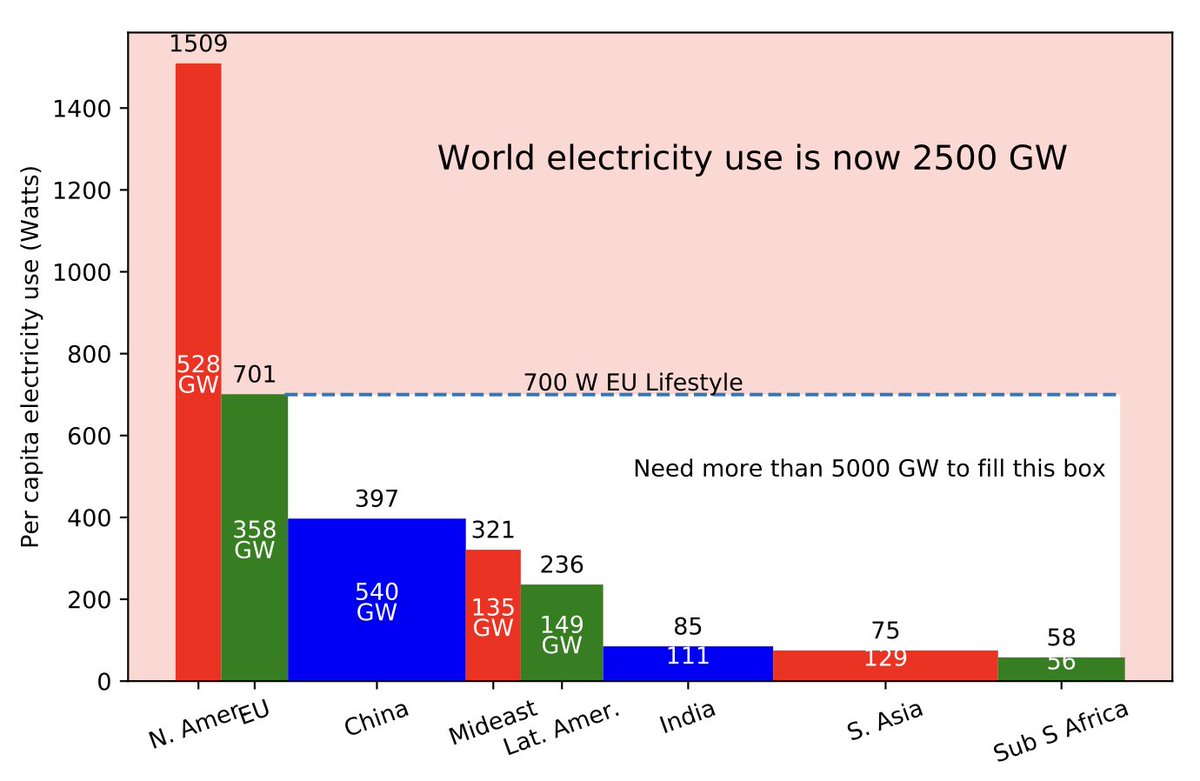
In the 1960s, one of the top concerns of the environmentalist movement was “overpopulation”. Books such as *The Population Bomb* and *Famine 1975!* waged a campaign to sound the alarm.
What happened next:
What happened next:

*The Population Bomb*, by Paul and Anne Ehrlich, was particularly defeatist, opening with:
“The battle to feed all of humanity is over. In the 1970s… hundreds of millions of people are going to starve to death in spite of any crash programs embarked upon now.”
“The battle to feed all of humanity is over. In the 1970s… hundreds of millions of people are going to starve to death in spite of any crash programs embarked upon now.”
In 1970, Paul Ehrlich said: “When you reach a point where you realize further efforts will be futile, you may as well look after yourself and your friends and enjoy what little time you have left. That point for me is 1972.”
books.google.com/books?id=pwsAA…
books.google.com/books?id=pwsAA…
*Famine 1975!* was the book that proposed a system of “triage” to end food aid to “hopeless” countries such as India. The Ehrlichs endorsed this plan.
Nor did the Ehrlichs shy away from outright coercive methods, saying that population control should be achieved “hopefully through a system of incentives and penalties, but by compulsion if voluntary methods fail.” archive.org/details/popula…
On p. 135: “One plan often mentioned involves the addition of temporary sterilants to water supplies or staple food.” (!)
But if you're appalled by this, “rest easy… The option isn't even open to us, thanks to the criminal inadequacy of biomedical research in this area.” (!!)
But if you're appalled by this, “rest easy… The option isn't even open to us, thanks to the criminal inadequacy of biomedical research in this area.” (!!)
In other words, what the Ehrlichs think is criminal is not *adding sterilants to the water supply*, but the fact that we don't yet have the technology to do so.
Speaking of Indian PM Chandrasekhar, they said: “When he suggested sterilizing all Indian males with three or more children, we should have applied pressure on the Indian government to go ahead with the plan.… Coercion? Perhaps, but coercion in a good cause.” (p. 166)
Decades later, the Ehrlichs have expressed no regret, continuing to double down.
In a 50th-anniversary retrospective interview, Paul Ehrlich became an apologist for China's “one child” policy, saying it “was not as coercive as it was painted over here”. climateone.org/audio/populati…
In a 50th-anniversary retrospective interview, Paul Ehrlich became an apologist for China's “one child” policy, saying it “was not as coercive as it was painted over here”. climateone.org/audio/populati…
The Ehrlichs also only barely manage to admit that they got anything wrong. In a 2009 retrospective on their book, they say “Perhaps the most serious flaw… was that it was much too optimistic about the future.” (!) populationmedia.org/wp-content/upl…
And as late as 2018, Paul Ehrlich was promoting the idea that “the world’s optimum population is less than two billion people – 5.6 billion fewer than on the planet today.” theguardian.com/cities/2018/ma…
So yes, I blame the Ehrlichs: for defeatism, for hysterical propaganda, for advocating coercion, and for intellectual dishonesty.
• • •
Missing some Tweet in this thread? You can try to
force a refresh







